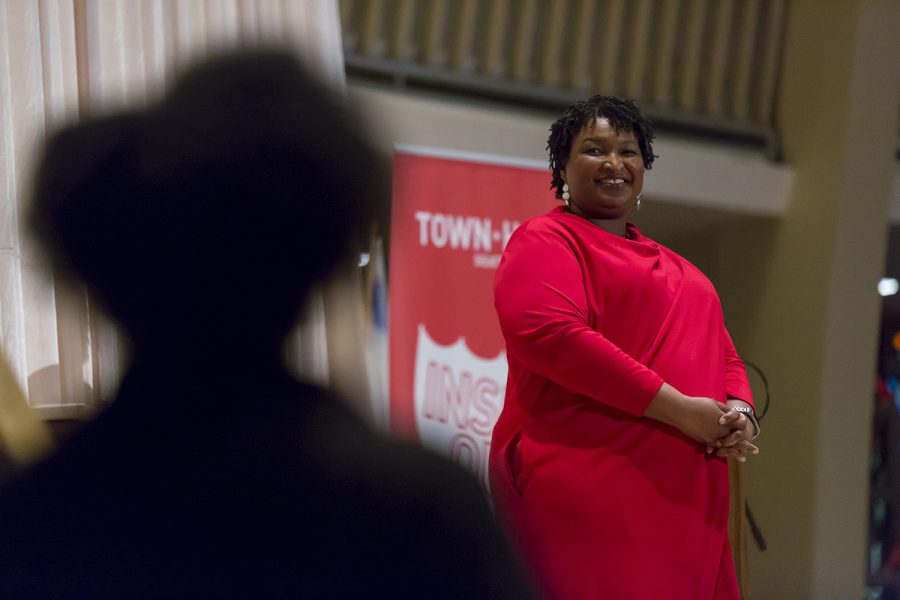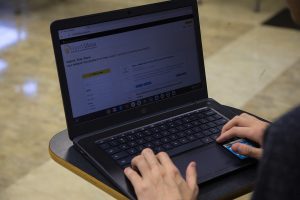Stacey Abrams will visit the UI to speak about fair elections
Stacey Abrams takes a question from a supporter at Temple De Hirsch Sinai on April 25, 2019. (Paul Christian Gordon/Zuma Press/TNS)
October 10, 2019
Former Georgia House Democratic Leader Stacey Abrams will visit the IMU next month to give a presentation advocating for fair elections in 2020.
According to a press release, Abrams will speak at 5:30 p.m. Nov. 4 in the IMU Main Lounge. Her presentation is part of a program called “Hard Won. Not Done.,” a partnership between the University of Iowa and the Iowa League of Women Voters to honor the 100th anniversary of the 19th Amendment. The event is free and open to the public.
Abrams ran in the 2018 Georgia gubernatorial election against Republican nominee Brian Kemp, making her the first black woman in Georgia to be nominated by a major political party for governor. Abrams lost the election, which was rife with allegations of voter suppression. Abrams never conceded the race.
Abrams has been a long-time advocate for free and fair elections. She founded Fair Fight 2020, an organization advocating for fair elections and election reform that has concentrated its efforts in battleground states to create voter-protection programs. Abrams has often attributed her loss in the midterm elections to voter suppression and “gross mismanagement” by Georgia’s Secretary of State’s office.
This visit comes after Fifth District Judge Joseph Seidlinon Oct. 1 upheld a provision in the 2017 voter-ID law that the state is within its constitutional rights to require an approved form of identification at polling places and on absentee ballots. This has been a point of controversy on the UI campus, because the law requires that a person’s form of identification must include an expiration date. UI student ID cards do not include an expiration date, so therefore cannot be used at polling places.
The judge struck down some parts of the bill, including a provision that allowed election officials to withhold a ballot if a signature did not match another on file. Seidlin also ruled that there cannot be language on an absentee ballot application that implies an ID number is required in order for a vote to count.






